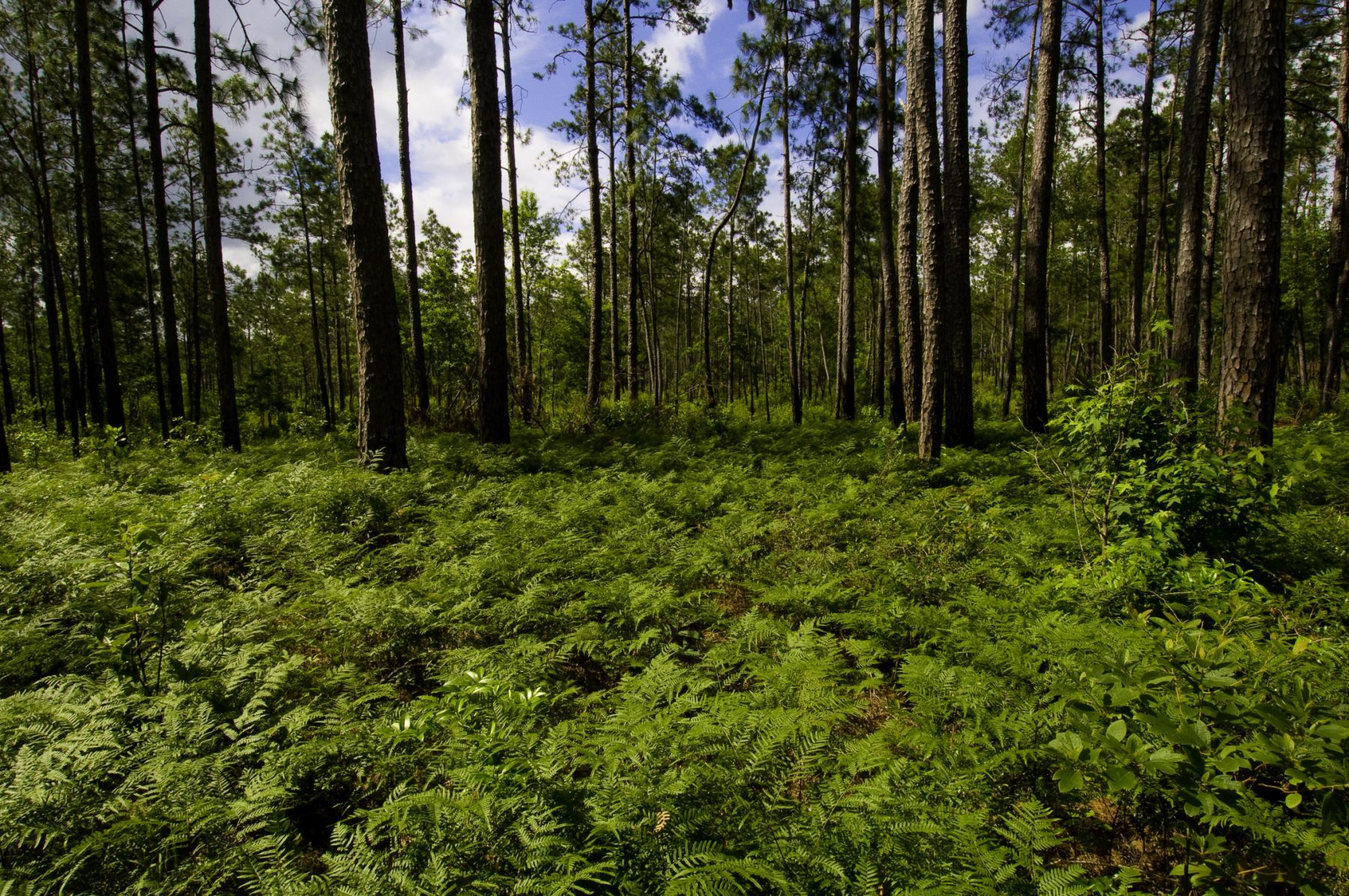
Big Thicket National Preserve, Hardin County.
We know we depend on the natural world for the air we breathe, but the Texas A&M Forest Service (TFS) wants to show how we can look to the natural world for our happiness and full-body wellness, too.
Since 1915, TFS has overseen resource management, from wildfire prevention to timber production. Inspired by the Japanese practice of Shinrin-Yoku, the agency now offers “forest bathing” retreats to show participants how nature can be used to heal.
The half-day retreats take place in the W.G. Jones State Forest in Conroe, where small groups are met by a therapist and a doctor, who both discuss the science behind forest therapy. Then, the doctor records the participants’ blood pressure, listens to their heartbeats, and asks them about their mood.
Participants then go on an hourlong walk with guidance from the therapist about how to activate the healing force of the forest by using all their senses to mindfully engage in the atmosphere. Though forest therapy involves walking, the primary goal is to be grounded in nature, not getting physical exercise.
The preparatory procedures show the measurable benefits of forest therapy. After the guided walk, most participants have lower blood pressure and report feeling more positive. Studies from the Association of Nature and Forest Therapy have shown forest therapy reduces the amount of cortisol—a stress hormone—in the body.
In conjunction with the Southern Group of State Foresters, TFS continues to publish research from an array of sources showing the health benefits of spending meditative time in treescapes, which include boosting the immune system and decreasing mental fatigue.
“We have a lot of people that raise their eyebrows,” John Warner, a Conroe-based District Forester, says. “But when they see the comparisons of vital statistics like reduced blood pressure and stress hormones, they take it a bit more seriously.”
The forest therapy events take place once a month at the W.G. Jones State Forest. The events are free and open to the public, but reservations will need to be made online (where fall dates will soon be available) in advance.
TFS hopes that forest bathing will allow rural residents and urbanites alike to recognize the importance of preserving forests.
“With so many people in cities now, we generally connect with a small portion of the population as foresters,” Warner says. “But in offering forest therapy, we’re giving everyone an opportunity to experience the mind-body health benefits of a forest.”








